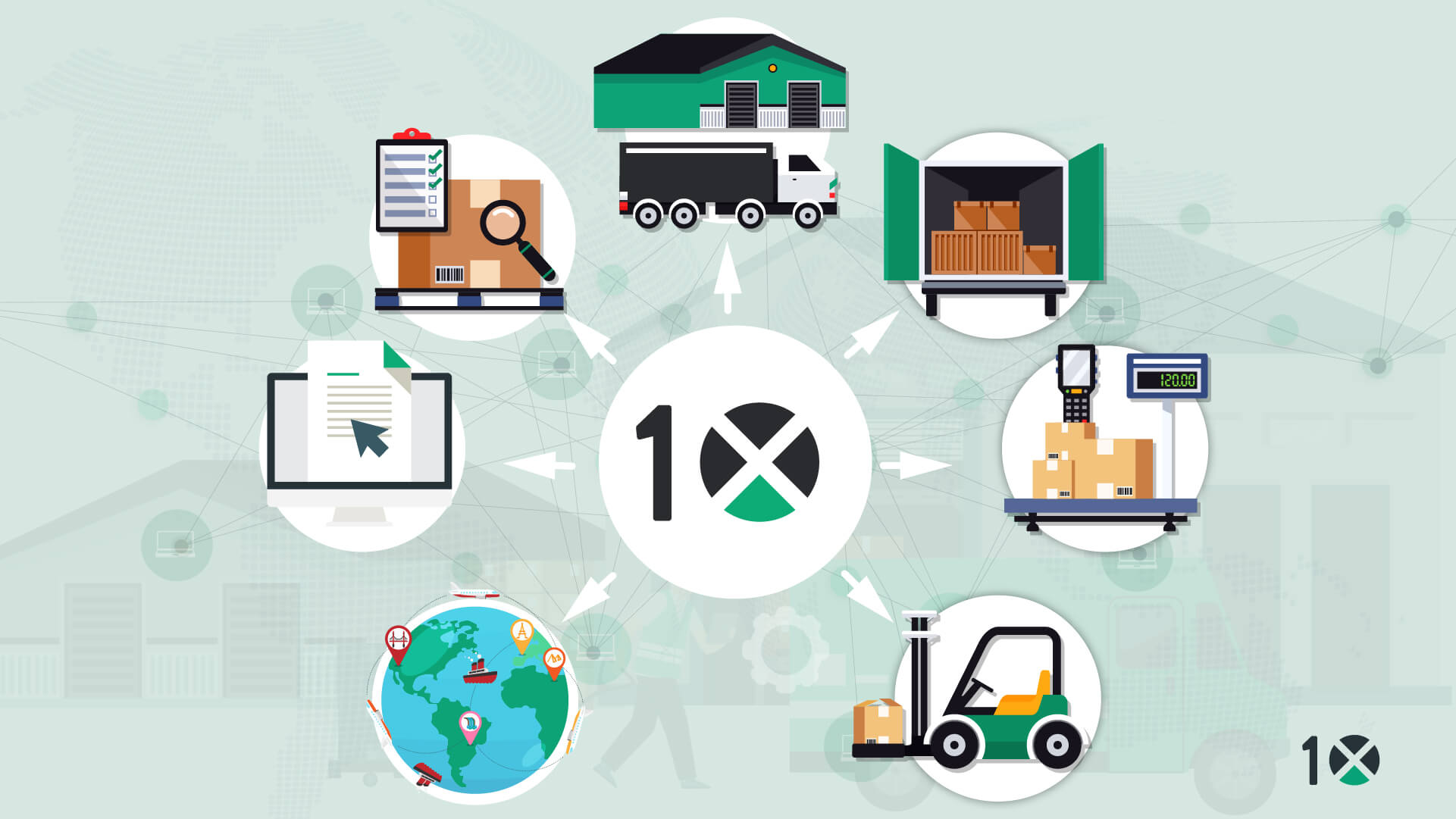Summary
- ERP systems streamline carrier selection and rate comparison, optimizing cost efficiency for industrial distribution businesses.
- Freight consolidation and route optimization in ERP systems reduce trips, fuel consumption, and maintenance costs while improving delivery times.
- Automated shipping documentation in ERP systems enhances efficiency, reduces errors, and ensures compliance with international regulations, positioning businesses for growth and competitiveness.
In today’s competitive market, small to midsize industrial distribution businesses constantly seek ways to optimize operations and reduce costs without compromising service quality. One of the most significant areas where efficiency can be improved is a freight and shipping management. Advanced Enterprise Resource Planning (ERP) systems offer a comprehensive solution. ERP systems can significantly reduce shipping and freight costs by integrating carrier selection and rate comparison, freight consolidation, route optimization, and automated shipping documentation, enhancing profitability and operational efficiency. This blog post explores how leveraging ERP technology can transform your shipping and freight management processes, ensuring your business remains competitive and ready to scale.

Carrier Selection and Rate Comparison
ERP systems’ ability to streamline carrier selection and rate comparison represents a pivotal advantage, especially for small to midsize industrial distribution businesses where cost efficiency is paramount. These advanced systems excel in integrating seamlessly with an extensive network of carriers, thereby providing businesses with real-time access to an array of shipping rates and services. Such comprehensive integration empowers businesses to efficiently compare and contrast carriers’ costs and delivery times within a user-friendly interface. This ensures the selection of the most cost-effective and efficient shipping options and significantly enhances decision-making processes.
Automating the carrier selection and rate comparison process is one of the key features of ERP systems, designed to save invaluable time and eliminate the potential for human error. This automation ensures that business decisions are informed by accurate and up-to-date data, thereby mitigating risks associated with manual data entry and analysis. Moreover, this capability facilitates a more strategic approach to shipping logistics, allowing businesses to optimize shipping operations and reduce overhead costs. By leveraging the power of ERP systems for carrier selection and rate comparison, small to midsize industrial distribution businesses can achieve higher operational efficiency and financial savings. This strategic advantage is essential in today’s highly competitive market, where optimizing every aspect of operations can significantly improve profitability and customer satisfaction.

Freight Consolidation and Route Optimization
ERP systems stand out significantly in their ability to revolutionize freight management through advanced freight consolidation and route optimization. These systems delve deep into analyzing order volumes and shipping destinations, leveraging this data to uncover valuable opportunities for consolidating shipments. By doing so, ERP software effectively reduces the number of required trips, directly impacting and lowering overall shipping costs. This strategic consolidation streamlines operations and contributes to a greener footprint by minimizing unnecessary logistics activities.
In addition to freight consolidation, ERP systems employ sophisticated algorithms designed to optimize delivery routes. This advanced functionality calculates the most efficient pathways for shipping, substantially cutting down on fuel consumption and maintenance costs. The ripple effect of these optimizations is not limited to cost savings; it also includes faster delivery times, which play a pivotal role in enhancing customer satisfaction and loyalty. Integrating these route optimization capabilities within a single ERP platform enables businesses to approach their shipping processes holistically.
This comprehensive optimization goes beyond cost reduction, touching on every aspect of shipping and logistics management. By leveraging the full suite of features offered by ERP systems, businesses can achieve operational efficiency that significantly boosts their competitive edge. The ability to consolidate freight and optimize routes within a unified system translates into substantial cost savings, operational improvements, and a better overall customer experience. This strategic advantage is crucial for small to midsize industrial distribution businesses aiming to scale profitably in an increasingly competitive marketplace.

Automated Shipping Documentation
Automating shipping documentation with ERP systems significantly enhances business efficiency and cost savings. Traditional manual documentation processes are prone to errors, leading to delays and higher operational costs. ERP systems automate this task, easily generating accurate, compliant shipping documents like bills of lading, packing lists, and invoices. This reduces errors and speeds up shipment processing, avoiding costly delays. By shifting from manual to automated document generation, businesses can reallocate employee time to strategic tasks that directly contribute to growth, such as improving customer service and sales strategies. Furthermore, ERP systems ensure compliance with international shipping regulations, facilitating smoother cross-border trade. This streamlined approach boosts operational efficiency and positions businesses for better regulatory compliance and competitive advantage in the marketplace.
Conclusion
For small to midsize industrial distribution businesses, optimizing freight and shipping costs is not just a matter of cutting expenses but a strategic imperative for growth and competitiveness. ERP systems offer a powerful toolset for achieving these optimizations through advanced carrier selection and rate comparison, freight consolidation and route optimization, and automated shipping documentation. By harnessing the capabilities of ERP, businesses can achieve significant cost reductions and improve their operational efficiency and customer service levels. Investing in an ERP solution tailored to the unique needs of industrial distribution is not just an operational decision; it’s a strategic move toward building a more efficient, scalable, and profitable business. As we look to the future, the role of ERP in shipping and freight management will only grow, becoming a critical component of successful business strategies in the industrial distribution sector.
Ready to transform your industrial distribution business with a cutting-edge ERP solution? Contact 10X ERP today to discover how our cloud-based platform can revolutionize your freight and shipping operations. Don’t just optimize your costs—unlock a new level of efficiency and growth. Let 10X ERP be your partner in navigating the future of industrial distribution. Reach out now to explore the full potential of our ERP capabilities tailored just for you.
